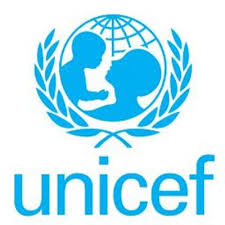Child labour refers to work that is physically and morally dangerous and harmful to children; and/or interfering with their schooling by (i) depriving them of the opportunity to attend school; (ii) obliging them to leave school prematurely; (iii) requiring them to attempt to combine school attendance with excessively long and heavy work. Child labour deprives children (any person under 18) of their childhood, their potential and dignity, and it is harmful to children’s physical and mental development. The latest global estimates indicate that 160 million children – 63 million girls and 97 million boys – were in child labour globally at the beginning of 2020, accounting for almost 1 in 10 of all children worldwide. 79 million children – nearly half of all those in child labour – were in hazardous work that directly endangers their health, safety and moral development.
The United Nations Convention on the Rights of the Child underlines that every child has the right “to be protected from economic exploitation and from performing any work that is likely to be hazardous or to interfere with the child’s education” or that is likely to harm the child’s health or “physical, mental, spiritual, moral or social development.” Sustainable Development Goal (SDG), Target 8.7 underlines that states should take immediate and effective measures to eradicate forced labour, end modern slavery and human trafficking and secure the prohibition and elimination of the worst forms of child labour, including recruitment and use of child soldiers, and by 2025 end child labour in all its forms.
Turkey is committed to eliminate the worst forms of child labour and combat child labour in all forms. The UN Convention on the Rights of the Child, and the UN International Convention on the Protection of the Rights of All Migrant Workers and Members of their Families are the most relevant ones among international conventions ratified by Turkey. In addition, Turkey is a party to ILO conventions 138 (the Minimum Age Convention) and 182 (on the Prevention of the Worst Forms of Child Labour). The Labour Law bans employment below the age of 15. Various national laws contain provisions regarding the tasks in which children may/may not be employed, minimum ages and the rights/protection of children in work.
PURPOSE AND OBJECTIVES OF THE ANALYSIS
The main objective of this analysis is to document prevalence of child labour risks in garment sector in Turkey. The analysis will:
- Provide a comprehensive overview and analysis of the child labour risks and prevalence in production and material supply chains of garment sector in Turkey (covering all tiers starting from tier 1 to upstream supply chain; all the way towards tier 4)
- Identify challenges and opportunities at workplace, marketplace and community levels for policy and programming recommendations by analysing secondary data sources and collecting qualitative data
- Present tangible recommendations for addressing children’s rightsissues and promoting family friendly workplace policies and practices in the garment supply chain
The findings of this analysis will be primarily used by UNICEF with all stakeholders mandated to combat child labour and provide preventive, protective services to address child labour especially in garment sector while being utilized to promote decent work conditions and arrangements for all those permitted to work legally. It will serve 2 main purposes:
- Generate knowledge on risks and manifestations of child labour in garment sector in Turkey,
- Develop and design recommendations, programmes, models and strategies applicable for different tiers and for businesses with different capacities to address child labour and promote Children’s Rights and Business Principles, family friendly workplace policies and practices as well.
FOCUS AND SCOPE OF THE ANALYSIS
The analysis will be representative at national level and will be based on national level data for desk review and quantitative analysis. There should be special attention to cover upper tiers to reach out the most vulnerable group of workers who may or may not be part of formal labour force. The analysis is expected to present child labour risk for all children in Turkey including but not limited with the most vulnerable refugee children, children with disabilities. Turkish Statistical Institute’s regular surveys and data sets on labour force and child labour should be taken as a basis to set the ground for the analysis.
MINIMUM QUALIFICATIONS AND SPECIALIZATIONS REQUIRED
The consultancy company/institution is expected to propose a team with 3-4 members including an experienced team leader that offers a mix of knowledge, skills, and expertise needed to successfully complete the assignment. The desired qualifications needed from the consultancy company/ institution to complete this assignment
The Proposals MUST be received at the above e-mail address by latest 8 November 2021 at or before 10:00hrs. Due to the nature of this RFP, there will be no public opening of proposals. Proposals received after the stipulated date and time will be invalidated.

